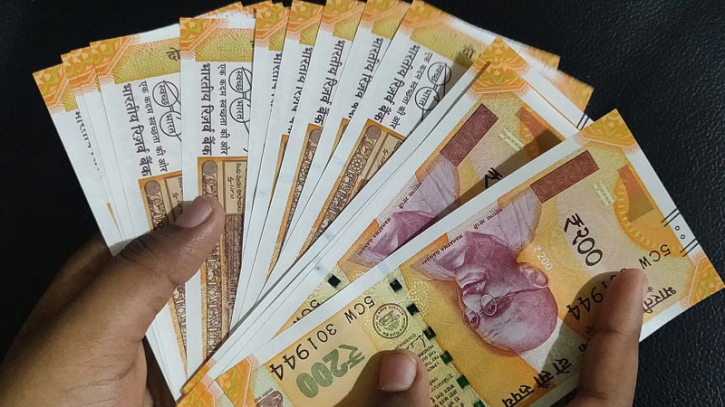Bangladesh diversifies trade currency as transactions begin in rupee

Bangladeshi businesses engaged in trade with India now have the option to settle their transactions in Indian Rupee instead of the US Dollar as the two neighbouring countries finished preparation to commence transactions avoiding the shortage of the greenback.
Currently, Bangladesh conducts its external trade exclusively in the USD. However, over the past 12 months, the appreciation of the US dollar against the taka by approximately 25 per cent has significantly impacted foreign exchange reserves, which have shrunk by a third since the onset of the Russia-Ukraine war.
Under the new arrangement, banks will be able to settle the import liability equivalent to the amount of rupees received from export proceeds. In the fiscal 2021-22, bilateral trade between Bangladesh and India amounted to about $16 billion, with Bangladesh's exports reaching only $2 billion. According to recent data, more than 19 per cent of the country's total imports came from India until March of the fiscal 2022-23.
Considering the present bilateral trade figures, it is evident that Bangladeshi businesses can settle their import bills with Indian suppliers in rupees, up to a maximum value of $2 billion. The transaction in rupee will increase if Bangladesh can ship more products to India, bankers said.
Eastern Bank Limited and state-owned Sonali Bank— the two local banks from Bangladesh have been authorised to settle import bills from India in rupee.
However, not all businessmen may be interested in the rupee settlement, as it is not mandatory for them. Ali Reza Iftekhar, managing director of Eastern Bank Limited said that, "We will announce on Tuesday that we are ready for trade in rupees. Now we need to raise awareness among businesses about this issue so that they feel comfortable trading in a new currency."
Iftekhar said trading in rupees may save Tk1 per dollar in terms of exchange rate losses. Regarding the taka-rupee exchange rate, the top banker stated that the US dollar will serve as the reference rate. This means that the rate will be determined based on the US dollar-rupee and US dollar-taka exchange rates.
According to him, they have applied for transactions in both rupees and taka, and the Reserve Bank of India has approved it. He mentioned that initially, the transactions will be conducted in rupees only for small amounts, with the volume gradually increasing in phases. Furthermore, trading in taka will be introduced later, he informed TBS.
Afzal Karim, the managing director of Sonali Bank, said all concerned parties, including traders, will receive detailed information about the matter. He noted that transactions may not take place on the opening day, as those interested in availing of the facility need to make necessary preparations.
Karim mentioned that they have completed all the required procedures, such as opening the Relationship Management Application (RMA) with the State Bank of India and the Industrial Credit and Investment Corporation of India (ICICI) bank. The RMA is necessary to open import letters of credit (LCs), he added.
He said a dedicated desk has been established for traders, which will provide all kinds of assistance to importers or exporters wishing to trade in rupees.
Both top bankers mentioned that if there is a shortage of rupees, they can obtain loans from the State Bank of India (SBI) and ICICI under a credit line, but these loans are short-term.
Abdul Matlub Ahmad, the president of the India-Bangladesh Chamber of Commerce and Industry, emphasised that Bangladesh's trade with India in rupees will benefit small businesses the most, as they struggle to obtain the greenback. He added that they will also benefit from saving on exchange rate losses.
The move to trade in rupees follows the Reserve Bank of India's decision last year to allow the settlement of international trade in the Indian currency.
Since the Ukraine-Russia war began in February 2022, Bangladesh has been grappling with settling import bills and opening new LCs for imports due to a dollar crisis. The country's forex reserves have decreased by more than a third since then, reaching below $30 billion, which is a seven-year low.
Industry insiders stated that LCs can be opened in five currencies recognised by the International Monetary Fund (IMF) and Canadian dollars, from any bank branch involved in foreign exchange transactions. No separate permission from any bank is required for this. The five currencies recognised by the IMF are the US dollar, euro, British pound, Japanese yen, and Chinese yuan. Although China's currency has been recognised by the IMF since 2016, the Bangladesh Bank allowed opening of LCs in yuan last September. Since 2018, the opening of a clearing account with the Bangladesh Bank in yuan has been permitted. However, there has not been much interest in trading in other currencies, including the yuan, outside of the dollar.
.png)




